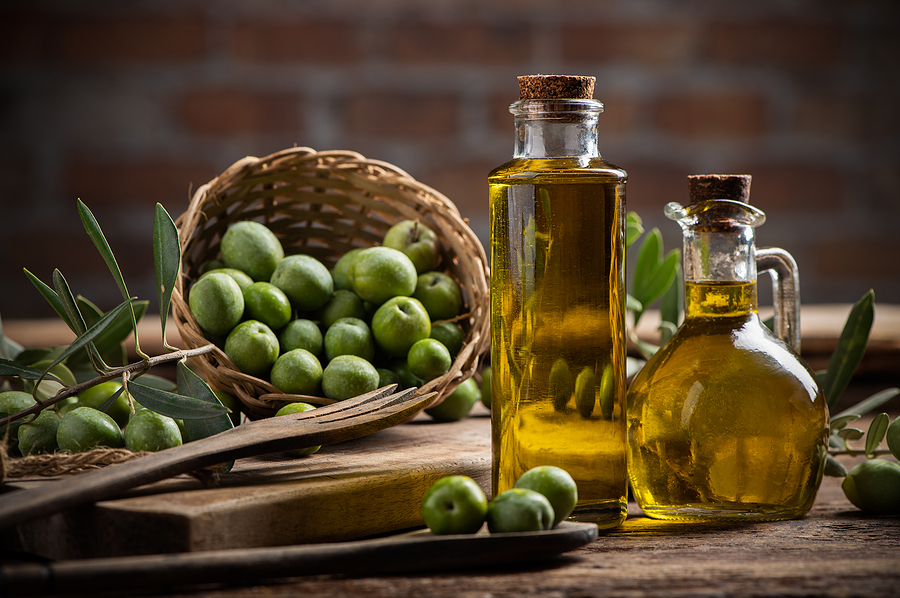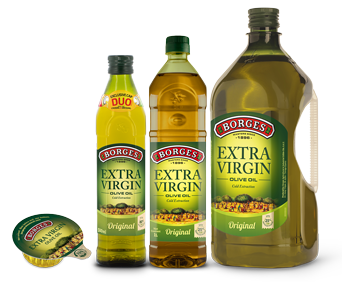Exploring the Various Kinds Of Olive Oil and Their Uses, Consisting Of Additional Virgin Olive Oil
The exploration of olive oil incorporates a diverse variety of kinds, each offering unique tastes and cooking applications. Bonus virgin olive oil, renowned for its remarkable quality and wellness benefits, offers as a staple in lots of kitchens, yet it is just one facet of this complex ingredient. extra virgin olive oil benefits. Other ranges, such as refined and pure olive oils, additionally necessitate interest for their one-of-a-kind buildings and uses. Recognizing these differences can dramatically affect both food preparation techniques and taste profiles. What, then, should one take into consideration when choosing the appropriate olive oil for a particular cooking endeavor?
What Is Olive Oil?
Stemmed from the fruit of the olive tree, olive oil is a staple in Mediterranean food and an essential component in numerous cooking applications. This versatile oil is created by pressing entire olives, causing a fluid that differs in flavor, color, and scent depending upon the kind of olives utilized, the area of farming, and the removal procedure. Olive oil is mostly made up of monounsaturated fats, specifically oleic acid, which is known for its potential health benefits, including anti-inflammatory residential or commercial properties and cardiovascular support.
In addition to its culinary usages, olive oil has a lengthy background of application in typical medication and skin care, owing to its abundant antioxidant material (extra virgin olive oil benefits). The oil is commonly utilized in dressings, marinates, and for cooking techniques such as sautéing and roasting. Its unique flavor profile can boost the preference of numerous meals, making it a crucial active ingredient for both home chefs and expert chefs
Furthermore, olive oil is commemorated for its role in the Mediterranean diet regimen, which is related to countless health and wellness benefits. As awareness of these benefits expands, olive oil continues to gain appeal worldwide as a basic element of a healthy way of living.
Sorts Of Olive Oil
Recognizing the different types of olive oil is crucial for both health-conscious consumers and cooking enthusiasts. Olive oil is identified mainly based upon its extraction approach and quality, which dramatically impacts its scent, wellness, and flavor advantages.

Light olive oil, despite its name, describes a lighter flavor and not lower calories. It is ideal for those looking for a much more subtle preference in marinates and dressings. Additionally, there are flavorful olive oils infused with herbs, seasonings, or citrus, which can improve dishes without the demand for extra seasoning.
Each sort of olive oil serves specific cooking purposes, and recognizing these distinctions allows customers to make informed selections that line up with their food preparation styles and health objectives.
Extra Virgin Olive Oil
Additional virgin olive oil (EVOO) is widely pertained to as the best olive oil offered, celebrated for its abundant taste and many wellness benefits. To be identified as additional virgin, the oil has to be produced from fresh olives making use of mechanical processes, without the usage of solvents or extreme warmth. This precise approach preserves the oil's all-natural tastes, antioxidants, and healthy and balanced fats, resulting in a product with a reduced acidity level of much less than 0.8%.
EVOO is bountiful in monounsaturated fats, especially oleic acid, which is connected to reduced inflammation and enhanced heart wellness. It also consists of polyphenols, effective antioxidants that may use safety effects against persistent conditions. The taste profile of EVOO can vary dramatically depending on the olive range and area of manufacturing, varying from fruity and grassy to robust and sharp.

Culinary Use Olive Oil

In food preparation, olive oil can be made use of for sautéing, toasting, and barbecuing, offering a healthier alternative to butter or other fats. Its high smoke factor makes it appropriate reference for different cooking techniques, while its antioxidants add to a heart-healthy diet regimen. Sprinkling olive oil over completed dishes, such as pasta, fish, or grilled veggies, can raise flavors and include a touch of style.
Additionally, olive oil plays a considerable role in cooking, where it can change conventional fats in check these guys out recipes for bread and breads, passing on moisture and a refined taste. It additionally works as a base for infused oils, allowing cooks to try out tastes such as garlic, natural herbs, or chili, even more increasing its cooking potential. On the whole, olive oil's adaptability makes it important in both home and professional kitchen areas.
Picking Top Quality Olive Oil
When selecting quality olive oil, it's vital to think about several crucial elements that affect the product's scent, flavor, and health and wellness advantages. Opt for additional virgin olive oil (EVOO), which is acquired from the first cold pushing of olives and has the highest levels of anti-oxidants and beneficial compounds. Try to find oils that are licensed by recognized organizations, as this commonly ensures adherence to strict high quality criteria.
The product packaging also plays a significant function in protecting the oil's honesty. Select oils kept in dark glass bottles or tins to secure versus light destruction. Take note of the harvest date; fresher oils provide exceptional flavor and dietary worth, so choose items that are within 18 months of their harvest.
Be mindful of the preference; a great high quality olive oil should have an equilibrium of fruity, bitter, and sharp notes, suggesting its richness and intricacy. By examining these aspects, you can ensure you are choosing the ideal olive oil for your culinary needs.
Verdict
In recap, the exploration of numerous types of olive oil discloses distinct features and applications, with extra virgin olive oil standing for the pinnacle of high quality due to its reduced acidity and high antioxidant web content. Understanding the various varieties of olive oil enables for educated choices in cooking approaches, promoting much healthier practices while enhancing the total gastronomic experience.
Derived from the fruit of the olive tree, olive oil is a staple in Mediterranean cuisine and a vital ingredient in different cooking applications.The most common types of olive oil include improved olive oil, pure olive oil, and light olive oil.Extra virgin olive oil (EVOO) is widely related to as the highest possible quality olive oil offered, popular for its abundant flavor and various health and wellness check my blog advantages. Decide for extra virgin olive oil (EVOO), which is derived from the very first chilly pushing of olives and has the highest levels of antioxidants and helpful substances.In recap, the exploration of various types of olive oil discloses distinct characteristics and applications, with extra virgin olive oil representing the pinnacle of high quality due to its low acidity and high antioxidant material.
Comments on “Extra Virgin Olive Oil Benefits: The Secret to Healthier Hair and Nails”